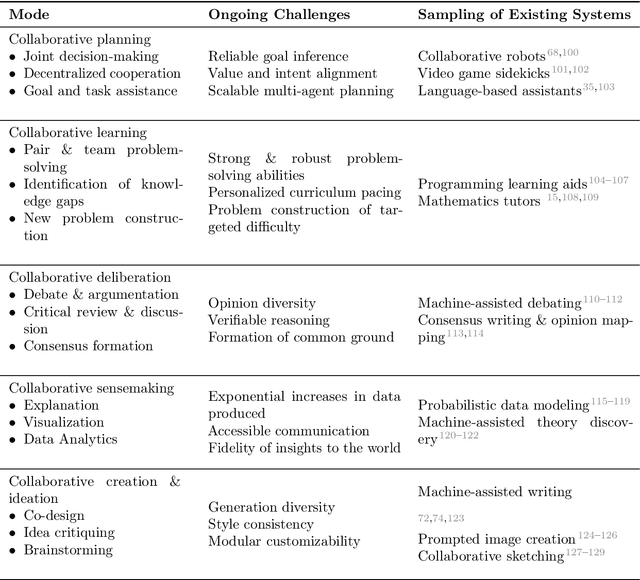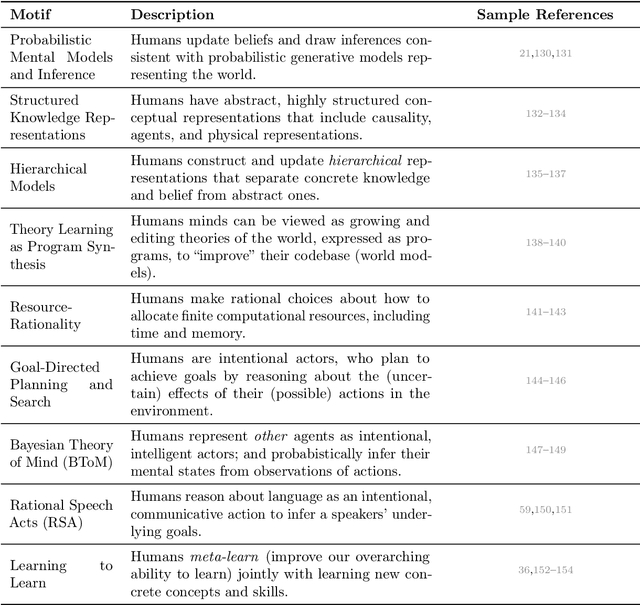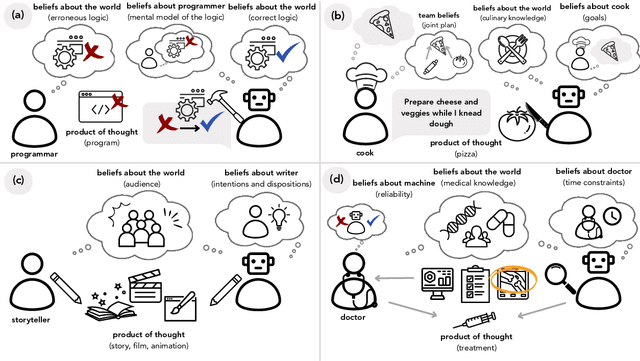Building Machines that Learn and Think with People
Paper and Code
Jul 22, 2024



What do we want from machine intelligence? We envision machines that are not just tools for thought, but partners in thought: reasonable, insightful, knowledgeable, reliable, and trustworthy systems that think with us. Current artificial intelligence (AI) systems satisfy some of these criteria, some of the time. In this Perspective, we show how the science of collaborative cognition can be put to work to engineer systems that really can be called ``thought partners,'' systems built to meet our expectations and complement our limitations. We lay out several modes of collaborative thought in which humans and AI thought partners can engage and propose desiderata for human-compatible thought partnerships. Drawing on motifs from computational cognitive science, we motivate an alternative scaling path for the design of thought partners and ecosystems around their use through a Bayesian lens, whereby the partners we construct actively build and reason over models of the human and world.
 Add to Chrome
Add to Chrome Add to Firefox
Add to Firefox Add to Edge
Add to Edge